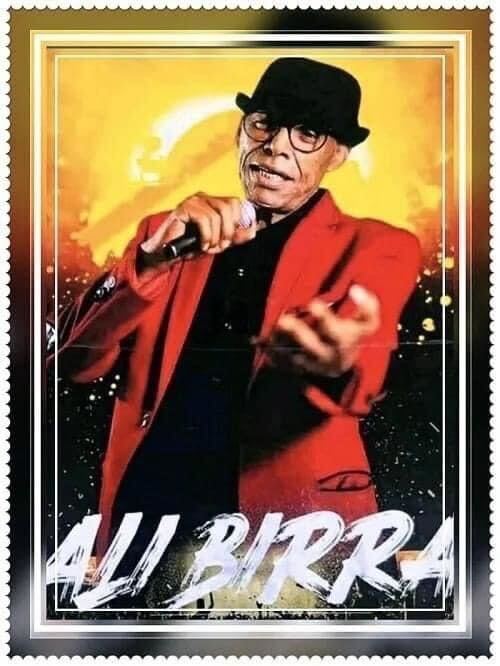Ali Mohamed Mussa, known as Ali Birra, was born to Mohammed Mussa and Fatuma Ali in Dire Dawa city, eastern Oromia, in 1947. He was named his late grandfather and attended Quranic School in Dire Dawa before joining a secular school. Ali enjoyed singing and dancing at school and around his neighborhood.
When he was just 13 years old, Ali joined a band named Urji Bakalcha (later renamed as AfranQallo). On Eid night in 1963, his band performed their first public show and Ali played the song Birradha Bari’e, after which he began to be called Ali Birra. The band was forced to break up after several members of the band were arrested by Haile Silase’s regime, who were unhappy with the fact that the band performed in Afaan Oromo. After this, Ali spent time in various countries (US, Djibouti, Canada, Sweden, and Saudi Arabia) and learned to fluently speak several languages including Afan Oromo, Amharic, Harari, Arabic, and Somali languages.

Ali continued to make music during this time, and performed with various Ethiopian musical legends throughout the world, including in Hager Fikir and Ras Theater. When he returned to Ethiopia, Ali established a relationship with the Mecha Tulema Association (Oromo Self-help Association) and participated in the association’s cultural activities, including music and drama, which placed him under the scrutiny of Ethiopian security forces. Ultimately, this made it impossible for him to continue performing in the Imperial bodyguard orchestra.
Throughout his career, Ali performed and composed music in the Afan Oromo, Amharic, Harari, Arabic, and Somali languages. In many of his songs, Ali criticized the abuses Ethiopian government regimes perpetrated against Oromos and promoted the culture and history of the Oromo people. In 1973, he released his first solo album, Abba Laffa (translation: Landlord), with the Aduu Birra band. This album made history as the first piece of Oromo music ever published. His work has inspired many young generations of Oromos to stand for justice and fight for their rights. At the time of his death, Ali had settled down in Bishoftu city with his wife Lily Marcos. He was seen as a freedom fighter, an educator, a symbol of national pride, and an entertainer. He lived his life to the fullest extent possible. Since his death, his life has been celebrated by numerous media sources, including the Addis Standard and OMN.

